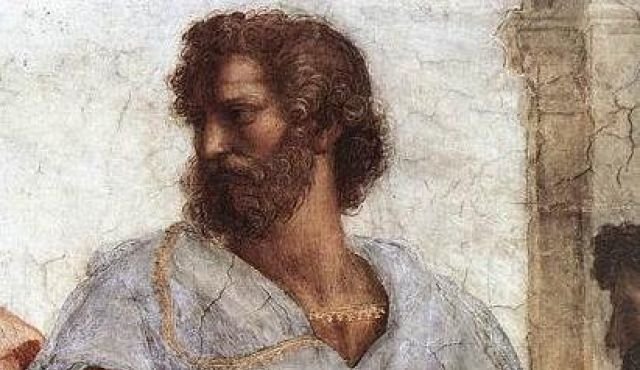Quoth Levi ben Gerson, also known as Gersonides: ‘The Law cannot prevent us from considering to be true that which our reason urges us to believe.’

On April 20, 1344, the medieval Talmudist, philosopher, mathematician and astronomer Rabbi Levi ben Gerson died. Alternately known by the acronym of his Hebrew name, Ralbag, and as Gersonides, among other monikers, Levi was a bold and brilliant scientist and thinker who straddled several different intellectual worlds and was not afraid to put forward unpopular theses — for example, that God could not have created the universe out of nothingness.
Levi ben Gerson was born in 1288 in Bagnols-sur-Ceze, in southern France. He came from a family of rabbinical scholars; there is speculation, for example, that a great-grandfather on his father’s side was Nachmanides, Rabbi Moshe ben Nachman. Few details are known about his personal life, but it is believed that Levi spent it in Avignon and in Orange, both in Provence.
Part of Levi’s lifetime overlapped with the period when the papacy was based in Avignon, and Rabbi Levi is believed to have had good relations with the popes, even dedicating one of his books to Pope Clement VI. It is also believed that he supported himself by working as a physician, rather than as a rabbi.
The 13th century is the period when Europe was rediscovering the philosophical works of Aristotle, mainly through the Arabic translations by the Spanish-Muslim philosopher Averroes (Ibn Rushd). Levi’s commentaries on Aristotle are in fact commentaries on commentaries that were written by Averroes.
Horrifying his peers
Like Maimonides before him, Gersonides attempted to reconcile the philosophy of Aristotle with traditional Jewish thought, but when he couldn’t, he tended to give preference to the logical conclusions of the Greek thinker. In the preface to his greatest work, “Sefer Milhamot Hashem” (“The Book of the Wars of God”), Levi wrote, “The Law cannot prevent us from considering to be true that which our reason urges us to believe.”
“The Book of the Wars of God” (which some of Levi’s opponents called “The Book of the Wars on God”) was divided into six parts, each dealing with one of the following big questions: the immortality of the soul, prophecy, the omniscience of God, divine providence, the nature of the heavenly bodies, and the eternity of matter.
In looking at these questions, Levi, relying on both empirical and inductive reasoning, took positions that were bound to provoke those Jewish (or Christian, for that matter) thinkers who held that God was omniscient and omnipotent.
So he argued that God did not create the universe ex nihilo, but rather out of preexisting, if inchoate, matter. He also said that it derived from the conviction that humans had free will, that God could not know in advance what a person’s fate was going to be; God could only know the alternatives from which humans could make their choices in life.
As a Jewish scholar, Rabbi Levi wrote commentaries on the books of the Torah, and on several of the prophets and other books of the Bible.
As a mathematician, Gersonides examined each of the different operations of arithmetic and algebra, and used inductive reasoning to prove mathematical theorems.
Levi ben Gerson is also remembered as one of the great astronomers of the era, and was in certain ways ahead of his time. On the one hand, he accepted the conventional astrological belief that the positions of the constellations contained information on people’s futures. On the other, he openly challenged the Ptolemaic system for calculating the movement of celestial bodies.
True, Levi never got to the point of concluding that the planets revolve around the sun, but he did improve on the existing model. He also devised a device and method for calculating the distances between objects in the sky that was far closer than anything that had previously existed.
Scientifically, Levi got as much wrong as he did right. But he helped strengthen the primacy of observation and experimentation in establishing theories of, for example, the movement of the moon, rather than the norm at the time of accepting simple belief unsubstantiated by empirical evidence.
 eSefarad Noticias del Mundo Sefaradi
eSefarad Noticias del Mundo Sefaradi

